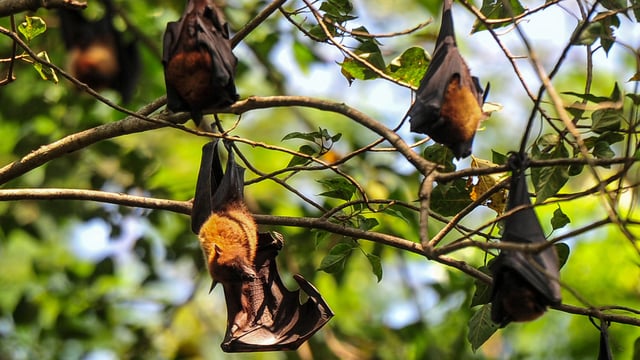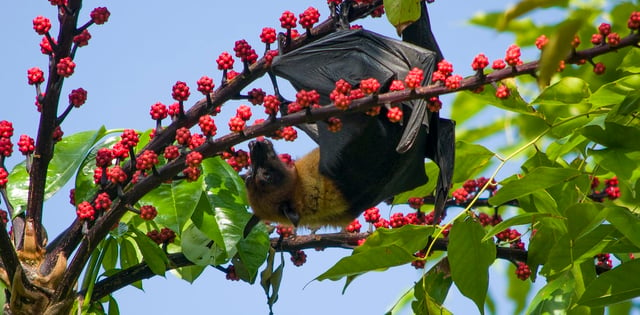Overview
- Fruit bats can consume large amounts of sugary fruit without adverse health effects due to specific physiological adaptations in their pancreas and kidneys.
- Unlike humans, fruit bats can lower their blood sugar faster and do not develop diabetes despite their high-sugar diet.
- Researchers have found that the fruit bat pancreas has extra insulin-producing cells and genetic changes to help it process an immense amount of sugar.
- Fruit bat kidneys have adapted to ensure that vital electrolytes would be retained from their watery meals.
- The study could provide valuable knowledge for developing new treatments for diabetes, which affects an estimated 38 million Americans.


